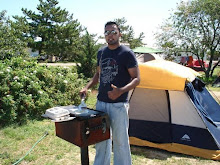During these past week I was asked to begin work on my research internship. The internship deals with using data to try and improve the science scores on the CAPT tests for High School Students. I was asked to compile a list of all the students, in the previous year they would have been freshman, and organize them into alphabetical order. I also had to add what level class they were in during the time of the test as well as their teacher. I was asked to create a master list using excel which was unfamilar to me. I was then left to organize the data and create a master list but my comfort zone in excel was very little. I eventually started to figure out certain parts of excel and was eventually able to create the master list but it was an extreme challenge for me since i had not used excel in almost two years.
I have always been a person who believed that students learn by doing, not by listening. I was able to examine my supervisor this week in her classroom and saw they she implemented a non-traditional way of teaching, one i plan on using. She would ask her students a question and then have then talk amongst themselves and discover the answer. This was the way i thought science teaching and learning should be accomplished and i was extremely pleased to see such a method put into practice.
Coming from a science background it is extremely crucial for me to reconize my beliefs when walking into a science classroom. When i was a student teacher this belief was put into question when it came down to the lovely subject of evolution. Students, as some tend to do, will try to say they do not believe in evolution as a way to avoide learning the topic. I explained to them that i was not asking them to change their beliefs but to consider the information as they may need it in the future. I have a strong belief, especially in science, that it is a field that builds onto itself. If our students are to succeed in the future they must be equipped with all the knowledge they can have.
Subscribe to:
Post Comments (Atom)

1 comment:
Ryan,
I can tell that you were referring to the syllabus guidelines as you created this first blog entry. However, in order for these to be effective there needs to be some connection from one ¶ to the next. While I can appreciate the challenges of re-learning software after not using it for a long time, that information, in addition to having little to do with science teaching and learning, fails to introduce the ideas you presented in the subsequent paragraphs.
See what you can to in order to create entries that have coherence. While you may have touched upon the list of requirements, our goal is to do more than to clear things from our checklist. In addition, I want for you to consider the particular challenges associated with teaching and learning of science for students who are often left out on the fringes. Those students will be the focus of this course even if they are neglected in other conversations about science performance.
I believe you have a golden opportunity within your internship to not only learn something about who you could be a science teacher and school leader -- you could also help inform the school about science teaching practices that will benefit all of the students. Even though their focus may be upon raising test scores, that information can be an entry point for more substantive discussion. You're in a potentially powerful place if you have the gumption to use your internship as a tool for leveraging change.
Post a Comment